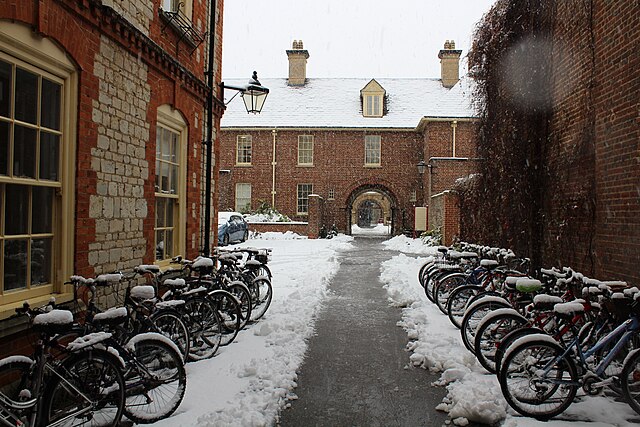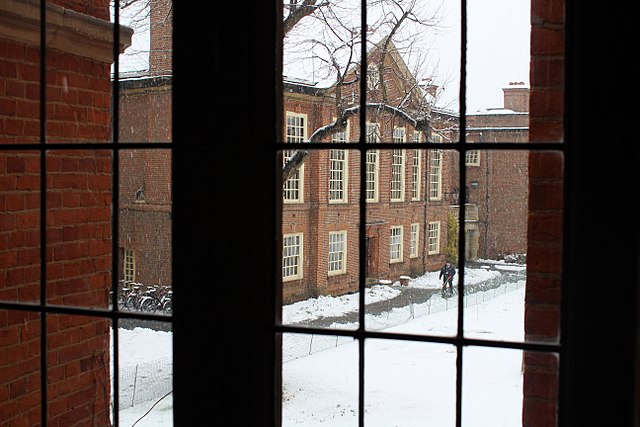The Thammasat University Library has acquired a new book that should be useful for students interested in literature, comparative religion, British studies, mythology, and related fields.
How to Misunderstand Tolkien: The Critics and the Fantasy Master is by Bruno Bacelli.
The TU Library collection also includes several other books by and about J.R.R. Tolkien, the English author and philologist who wrote The Hobbit and The Lord of the Rings.
Professor John Ronald Reuel Tolkien was a longtime teacher of Anglo-Saxon language at the University of Oxford, the United Kingdom. He also taught English Language and Literature at the same institution. He is considered as the father of modern fantasy literature.
In addition to his fiction, he actively researched language and philology. He specialized in English philology at university and graduated with Old Norse as his special subject. He worked on the Oxford English Dictionary from 1918 and is credited with having worked on a number of words starting with the letter W, including walrus. He gave courses in Old English heroic verse, history of English, various Old English and Middle English texts, Old and Middle English philology, introductory Germanic philology, Gothic, Old Icelandic, and Medieval Welsh. He also had some knowledge of the Finnish language.
This year the UK Royal Mint is producing a commemorative £2 coin to mark the 50th anniversary of Tolkien’s death.

Here are some thoughts by Professor John Ronald Reuel Tolkien:
Wars are not favourable to delicate pleasures.
- A Secret Vice (lecture, 1931) published in The Monsters And The Critics And Other Essays (1983)
The significance of a myth is not easily to be pinned on paper by analytical reasoning. It is at its best when it is presented by a poet who feels rather than makes explicit what his theme portends; who presents it incarnate in the world of history and geography, as our poet has done. Its defender is thus at a disadvantage: unless he is careful, and speaks in parables, he will kill what he is studying by vivisection, and he will be left with a formal or mechanical allegory, and what is more, probably with one that will not work. For myth is alive at once and in all its parts, and dies before it can be dissected.
- Beowulf: The Monsters and the Critics (1936)
I wish life was not so short, he thought. Languages take such a time, and so do all the things one wants to know about.
- Alboin Errol, in The Lost Road (1987)
The story-maker proves a successful ‘sub-creator’. He makes a Secondary World which your mind can enter. Inside it, what he relates is ‘true’: it accords with the laws of that world. You therefore believe it, while you are, as it were, inside. The moment disbelief arises, the spell is broken; the magic, or rather art, has failed…
Fantasy is a higher form of Art, indeed the most nearly pure form, and so (when achieved) the most potent…
Fantasy remains a human right: we make in our measure and in our derivative mode, because we are made: and not only made, but made in the image and likeness of a Maker…
I have claimed that Escape is one of the main functions of fairy-stories, and since I do not disapprove of them, it is plain that I do not accept the tone of scorn or pity with which ‘Escape’ is now so often used. Why should a man be scorned if, finding himself in prison, he tries to get out and go home? Or if he cannot do so, he thinks and talks about other topics than jailers and prison-walls? The world outside has not become less real because the prisoner cannot see it…
We find it difficult to conceive of evil and beauty together. The fear of the beautiful fay that ran through the elder ages almost eludes our grasp. Even more alarming: goodness is itself bereft of its proper beauty. In Faërie one can indeed conceive of an ogre who possesses a castle hideous as a nightmare (for the evil of the ogre wills it so), but one cannot conceive of a house built with a good purpose – an inn, a hostel for travellers, the hall of a virtuous and noble king – that is yet sickeningly ugly. At the present day it would be rash to hope to see one that was not – unless it was built before our time.
- On Fairy-Stories (1939)
No language is justly studied merely as an aid to other purposes. It will in fact better serve other purposes, philological or historical, when it is studied for love, for itself…
The basic pleasure in the phonetic elements of a language and in the style of their patterns, and then in a higher dimension, pleasure in the association of these word-forms with meanings, is of fundamental importance. This pleasure is quite distinct from the practical knowledge of a language, and not the same as an analytic understanding of its structure. It is simpler, deeper-rooted, and yet more immediate than the enjoyment of literature.
Most English-speaking people … will admit that cellar door is “beautiful,” especially if dissociated from its sense (and from its spelling). More beautiful than, say, sky, and far more beautiful than beautiful…Well then, in Welsh, for me cellar doors are extraordinarily frequent, and moving to the higher dimension, the words in which there is pleasure in the contemplation of the association of form and sense are abundant.
- English and Welsh (1955)
I have in this War a burning private grudge — which would probably make me a better soldier at 49 than I was at 22: against that ruddy little ignoramus Adolf Hitler (for the odd thing about demonic inspiration and impetus is that it in no way enhances the purely intellectual stature: it chiefly affects the mere will). Ruining, perverting, misapplying, and making for ever accursed, that noble northern spirit, a supreme contribution to Europe, which I have ever loved, and tried to present in its true light.
- To his son Michael Tolkien (9 June, 1941) from The Letters of J. R. R. Tolkien (1981)
My political opinions lean more and more to Anarchy (philosophically understood, meaning abolition of control not whiskered men with bombs) … the most improper job of any man, even saints (who at any rate were at least unwilling to take it on), is bossing other men. Not one in a million is fit for it, and least of all those who seek the opportunity.
- To his son Christopher Tolkien (29 November, 1943) from The Letters of J. R. R. Tolkien (1981)

(All images courtesy of Wikimedia Commons)

